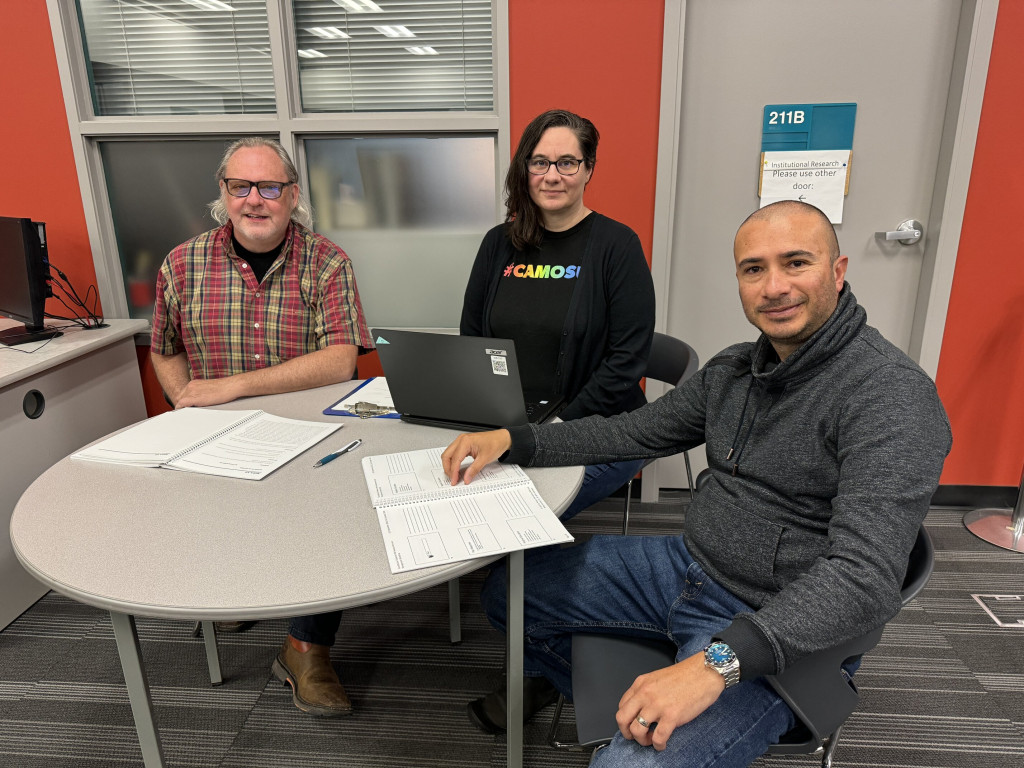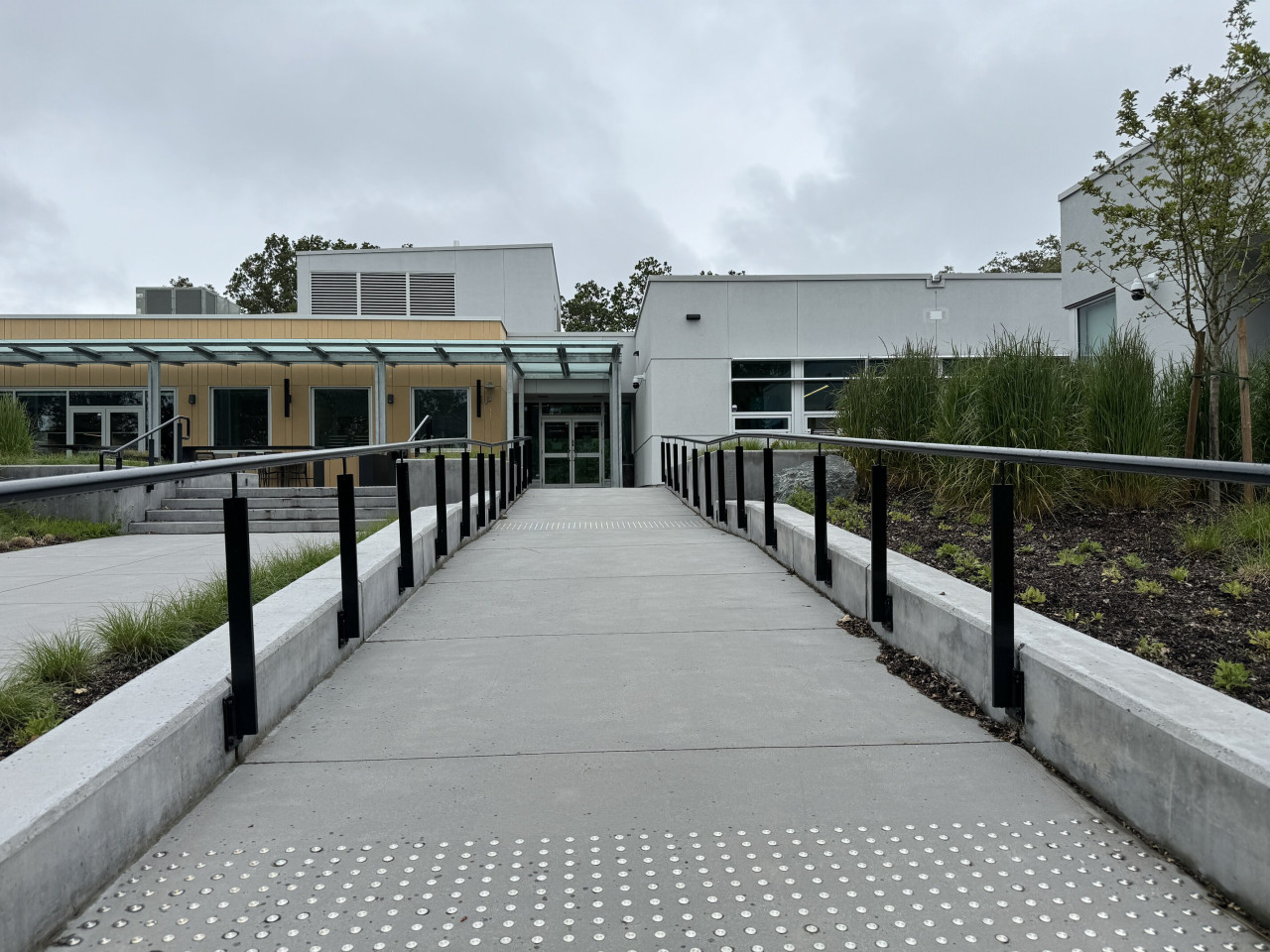Camosun College recognizes National AccessAbility Week 2024 with a series of awareness-raising events between May 27 and 31. All events will highlight and celebrate Camosun’s commitment to being accessible to and inclusive of people of all abilities.

The team at Camosun's Centre for Accessible Learning is always ready to help students.
National AccessAbility Week is an annual initiative by the Government of Canada that acknowledges the contributions of people with disabilities and ongoing efforts to be a more accessible and disability inclusive country. This is the first time that Camosun has participated in the national event.
“Accessibility requires a coordinated and committed institutional response,” says Ian Tol, chair of the Accessible Camosun committee organizing the week of events. “It takes more than one department, school or committee to create an accessible community. Accessibility is a shared responsibility.”
An awareness week shines the spotlight on the college’s efforts toward accessibility and inclusion, celebrating the services and supports for students and employees that have been thoughtfully designed and implemented over years. Examples include academic accommodations for students available through the Centre of Accessible Learning, the Universal Design for Learning framework that enhances student learning experiences, and an Abilities Management Specialist who provides support for staff and faculty.
Accommodations for students
The Centre for Accessible Learning (CAL) is an example of Camosun College’s commitment to accessibility. CAL has been serving students with documented disabilities of all types for the past 20 years.
One of the primary services that CAL provides is academic accommodations that ensure students have an equitable opportunity to accomplish their learning goals. The CAL staff coordinate academic accommodations for students and direct them towards related programs and services around the college. CAL also provides support and resources for instructors who implement the accommodations in their classes and exams.
“People make assumptions about disabilities and think that they’re something that can be seen. But the majority of people have invisible disabilities, including learning disabilities that affect reading, writing and cognitive processing. Academic accommodations provide more time and space for students.”
Darryl Gorrie, Manager of CAL
The majority of students accessing CAL supports do so for mental health disabilities. Not surprisingly, CAL saw an increase of accommodations during the COVID-19 pandemic, and continues to see high numbers of requests as students respond to the increasing pressures and stresses of society.
Enhanced learning experiences for all
Camosun’s commitment to accessibility extends into the classroom – both in-person and virtual. The college has specialists who are skilled in the possibilities of accessible learning.
Sue Doner is an Instructional Designer in Camosun’s eLearning unit. Her role involves coordinating the design and delivery of effective educational experiences, whether in the classroom or in the online environment.
Sue follows the Universal Design for Learning (UDL) framework, a research and principles-based approach that proactively supports variability in a learning environment. UDL recognizes that there is no one-size-fits-all approach to learning. By enhancing the learning experiences for all students, the need for many accommodations is reduced.
"I don’t want accessibility to feel like a burden to people. A framework like UDL encourages people to take small but meaningful steps to implement change. It helps bring meaning to learning without being performative or checking things off a list."
Sue Doner, Instructional Designer
Medical and disability supports for employees
As a large, complex institution with over 1,500 employees, Camosun’s commitment to accessibility impacts staff and faculty. Abilities Management Specialist, Cindy Williams, provides support and guidance for employees from across the college.
Cindy is located in the Paul Building at Lansdowne campus, where she always maintains confidentiality around employees’ medical information. She has over 18 years’ experience with the full spectrum of illnesses and injuries that employees may face. Before working at the college, she was a senior Disability Management Consultant at Island Health.
The most common issues among employees relate to physical limitations and subsequent accommodations. Cindy consults with ergonomic assessors, occupational safety and health, and insurance provider specialists to determine what employees need.
"The best part of my job is supporting employees and seeing what I can do to make their work lives better when they are faced with a medical condition. Although there are guidelines, this work is often not black and white. Luckily, I’m comfortable in the grey zone, as I have to look at supports on a case-by-case basis. We’re all human and we all have individual needs."
Cindy Williams, Abilities Management Specialist
Learn more about Camosun’s activities and resources for National AccessAbility Week 2024.
Established in 1971, Camosun is one of the largest colleges in British Columbia with campuses on the territories of the lək̓ʷəŋən and W̱SÁNEĆ peoples. For over 50 years, Camosun has been delivering innovative, relevant and applied education, supporting communities, businesses and employers.

Accessible Camosun
Camosun College's commitment to accessibility.
Contact information
Roseanne Harvey
Marketing & Communications StrategistCamosun College
